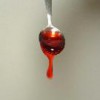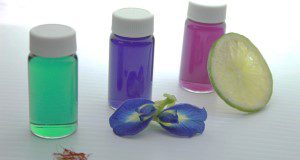Butterfly pea (Clitoria ternatea), a twining vine native to Southeast Asia, produces deep blue to purple flowers that bloom nearly year-round in ideal conditions. When extracted in a liquid, the addition of a mild acid such as lemon or lime juice turns the naturally deep blue to purple color into a much lighter pink or purple color, giving the extract its color-changing ability. This new 5-page publication of the UF/IFAS Environmental Horticulture Department outlines the use of butterfly pea flower extract (BPFE) as a pH-dependent natural colorant, including an explanation of the science behind the color change, detailed parameters for flower extraction, instructions for storage and processing of the extract as well as a discussion of some of the other benefits of using BPFE. Written by Sean Michael Campbell and Brian Pearson.
http://edis.ifas.ufl.edu/ep573
Tag: Herbal Medicine
Health Benefits and Medicinal Value of Honey
 Honey has been used for medicinal purposes for thousands of years. It is rich in sugars such as glucose and fructose, but it also contains small amounts of vitamins, minerals, amino acids, and antioxidants such as phenolic acids and flavonoids. These nutrients help to make honey a unique, natural health product. Its market niche as a health product is growing, and current research supports the potential of honey as a medicinal product. This 3-page fact sheet describes health aspects of honey deriving from the floral source and color, beneficial compounds, anti-microbial properties and anti-inflammatory properties. Written by Sara Marshall, Liwei Gu, and Keith R. Schneider, and published by the UF Department of Food Science and Human Nutrition, April 2015.
Honey has been used for medicinal purposes for thousands of years. It is rich in sugars such as glucose and fructose, but it also contains small amounts of vitamins, minerals, amino acids, and antioxidants such as phenolic acids and flavonoids. These nutrients help to make honey a unique, natural health product. Its market niche as a health product is growing, and current research supports the potential of honey as a medicinal product. This 3-page fact sheet describes health aspects of honey deriving from the floral source and color, beneficial compounds, anti-microbial properties and anti-inflammatory properties. Written by Sara Marshall, Liwei Gu, and Keith R. Schneider, and published by the UF Department of Food Science and Human Nutrition, April 2015.
http://edis.ifas.ufl.edu/fs267
